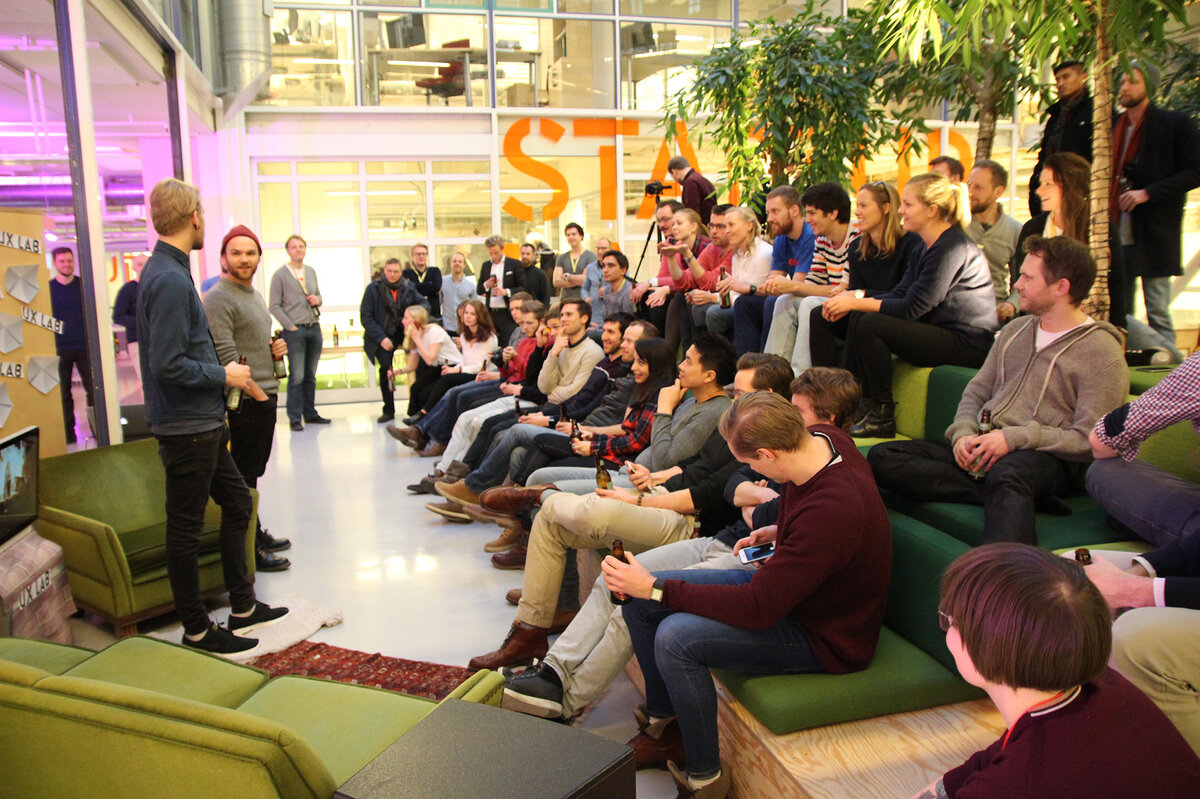A city needs a viable startup ecosystem to foster startups and new companies that create jobs. These communities produce ideas, capital, infrastructure, customers, in turn helping new ideas emerge. Photo: StartupLab
What is a startup ecosystem?
A startup ecosystem consists of six dimensions, which all need to be well functioning in addition to working with each other.
These are:
- Entrepreneurs
- Large corporations
- Educational Institutions
- Capital and funding (Risk capital)
- Government
- Support organizations
The model is based on MiT's model below, and we have added the support organizations, such as incubators and startup networks.

What about Oslo?
The startup ecosystem in Oslo has progressed a lot the last 5-10 years. Of course people were starting successful companies before that too (we all know Trolltech and Opera), but it is in recent years we have seen a substantial expansion on the whole ecosystem.
Here are some of the developments that have happened:
- In 2012/2013, the incubators/co-working spaces 657 Oslo, StartupLab and MESH opened up. Since then we have seen the dawn of SoCentral, Aleap (image), The Factory and Katapult. Currently there are 50 startup hubs in Oslo, and you can see the complete list here.
- Norwegian innovation clusters are an important driver for building new companies. You find many of them in Oslo, such as Norway Health Tech, Oslo Cancer Cluster, Energy Valley and the Life Science Cluster.
- Venture Capital firms like Snö, Alliance Venture and Nordic Impact have established themselves in Oslo.
- Mass media are catching up too, and now we can read startup news in publications like Shifter, DN Gründer and Finansavisen.
- All the Norwegian universities and higher education institutions have programs for entrepreneurship.
- There is a bunch of events for new, established and serial entrepreneurs. Global happenings like Oslo Innovation Week, Katapult Fest and Oslo Freedom Forum, and local meetups such as Startup Grind and Oslo Startup Day.
- Corporates and public sector institutions are working with startups through collaborations with hubs and/or directly with companies.
- Startups like Kahoot!, Huddly, No Isolation and ReMarkable have emerged. To only name a few.
- $271M was invested in startups in 2019. A 30% increase from 2018 (based on open data). 24% of all VC investments came from international investors.
- According to a report BI did 2 out of 3 work places are now being.
Location, location, location
Oslo has improved on global benchmarks. As featured in the 2020 Oslo State of the City report, Oslo now ranks #18 on the European Startup Initiative Startup Europe Heatmap 2019, climbing from #34. The study reports on the attractiveness of startup hubs in Europe.
The report analyses over 100 cities in Europe as well as a survey of over 1500 founders. They are asked to report on criteria like access to funding and talent, business regulations and industry connections and of course the startup ecosystem.
The top five cities for founders are 1. London, 2. Berlin, 3. Barcelona, 4. Paris and 5. Amsterdam. Stockholm ranks 10th and Copenhagen 16th.
You can read more about the main findings from the 2019 report here.

How we support the Oslo Startup Ecosystem
The Oslo Business Region team supports and follows the development of the ecosystem closely. Our goals are: to work for more successful innovation and technology startups in Oslo, collaboration between public and private companies, talent attraction and international profiling.
We develop and facilitate for collaborations, events such as Oslo Startup day and Oslo Innovation Week, and information and networks for startups and growth companies in Oslo. We promote Oslo internationally, as a leading city for innovation and entrepreneurship, targeting investors, startups and talent.
Do not hesitate to get in touch!
